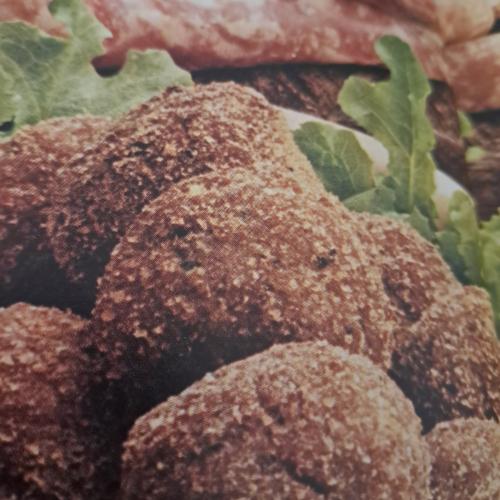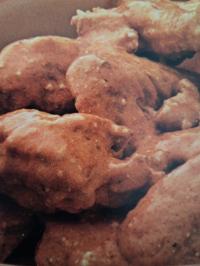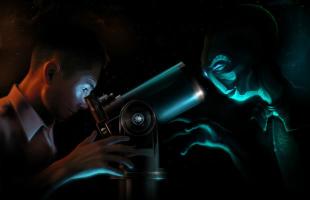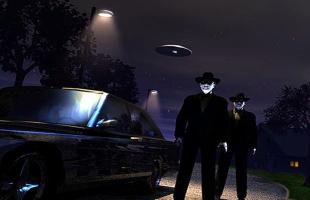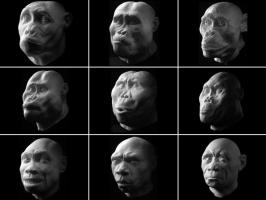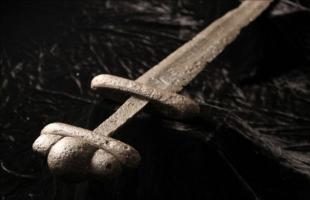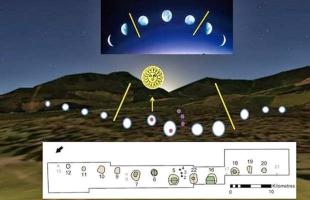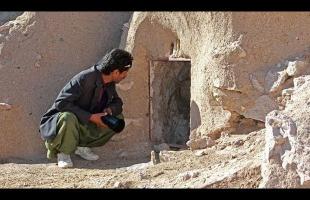Copy Link
Add to Bookmark
Report
Underground eXperts United File 549

### ###
### ###
### #### ### ### ### ####
### ### ##### ### ###
### ### ### ### ###
### ### ##### ### ###
########## ### ### ##########
### ###
### ###
Underground eXperts United
Presents...
####### ## ## ####### # # ####### ## ## #######
## ## ## ## ##### ## ## ## ## ##
#### ## ## #### # # ####### ####### #######
## ## ## ## ##### ## ## ##
## ## ####### ####### # # ####### ## #######
[ People I Met Hitchhiking: Minnesota To Nevada ] [ By Eric Chaet ]
____________________________________________________________________
____________________________________________________________________
PEOPLE I MET HITCHHIKING FROM MINNESOTA TO NEVADA
by Eric Chaet
The ramp alongside of which I was hitchhiking was on the western edge
of St. Paul, Minnesota. St. Paul & Minneapolis are the Twin Cities, a giant
metropolis--a center of flour milling. Minnesota Vikings football team, 3-M
Corporation (makers of Scotch tape & Post-its)...otherwise, I didn't know
much about it--or anyone in it.
Larry Demke, a thin man about 60 with green eyes full of mischief, who
shared some oatmeal cookies & coffee with me, & who managed silos for a
grain company he'd been working for since the Great Depression, drove me
into & thru Minneapolis & St. Paul, & went out of his way to let me out
here, near the western edge, decreasing the likelihood that I would be stuck
overnight, where I would have to locate & pay for a room, for the privilege
of sleeping.
It was over a hundred degrees, & had been for several days. I was in a
bright lethargy that had sounded like engines & tires on asphalt long enough
to seem endlessly. It was late afternoon.
Tho a few hundred yards away were rows of stores & parked cars--where I
was, there was no shade. Many cars, & many hours, had gone by, since I had
taken this position.
A young police officer--thin, & irritable, still more boy than man,
therefore with a need to demonstrate manliness--stopped his car, to insist I
go back up the ramp--he pointed--to the legal side of the "NO PEDESTRIANS
ALLOWED" sign.
There, drivers would be unlikely to realize, while there was still time
for them to stop, if they were so inclined, that I was trying to get a ride
on the highway: people in this era in this part of the world have HEARD of
hitchhiking, but few have witnessed it.
Just as the young policeman was a little out of control & making his
voice & manner as unpleasant in my direction as possible--because he was in
a position to do so without my being able to do anything about it--I, too,
was a little out of control, & told him I wasn't doing anyone any harm, &
that I was just trying to get on without a car.
As soon as I said it, I was disappointed in myself, for complaining,
when there was no market for complaints.
(I know I don't like to hear them, that I have to force myself to
listen to the complaints of those I respect & care for, &, even then--tho I
understand that if we are to be friends we must share the bad things that
have happened to us, as well as the good--I tell them that I will listen to
each complaint exactly once.)
He came right back at me, "It's not MY fault you don't have a car!" &
with a threat to take me in & lock me up--if I didn't just shut up & obey.
I felt the old anger inside me, inclined to expand & explode.
Idiot! I thought, addressing myself, not the policeman. You want the
consequences of fighting with this boy over this little bit of nothing?
I picked up my pack, shouldered it, & walked back to where he had
indicated. There, I shrugged off the pack, & stationed it between my legs,
again. More likely than not, I would be stuck in the city overnight now.
The young man got into his patrol car, & drove into the maelstrom of
city traffic.
While I was considering how much of a gamble it would be, now, to pick
up the pack, & resume my original position, a young man driving a pick-up
passed me, slowing down--& pulled over & stopped. There wasn't much room
where he was parked on the side of the ramp, one headlight right up against
a low cement wall--so other cars were accelerating by him, pretty close. I
gathered up my pack & ran--& he indicated, stony-faced, looking over his
shoulder thru the rear window, with his thumb, that I should climb into open
truck-bed, which I did.
Immediately, he took off--& I anchored myself as best I could, hanging
on with all the might in my fingers, to a little inward-rounded sheet-metal
flange on the top of the side-wall of the truck-bed.
We passed thru & out of suburban traffic, in just a few minutes, into a
long valley. Gradually, I established a stable, cross-legged position, with
my pack for a back-rest against the cab of the truck--so I was traveling
west, backwards, facing east.
An eastward-flowing tributary river made its smooth way toward the
Mississippi, to my right. To my left, a long freight train rattled
alongside us, also headed west. I leaned over the side of the truck, &
strained to turn & see, in the direction we were headed. Over-head, a vast,
ragged gray & pastel sunset was emerging out of the endless afternoon, &
slowly becoming dimmer & dimmer.
I slept--after drinking some water from one of the vitamin bottles &
eating a handful of roasted soybeans--at the edge of a small town, in the
tall weeds near the highway.
Next day, I woke up sweating in the heat that came, immediately, with
the dawn. I drank a little water from one of the vitamin bottles, put it
back in the pack, then took up my position.
It being a holiday weekend, a lot of cars went by. I was in a good
spot. It would have been easy for them to stop. Almost all had their
windows rolled all the way up: air-conditioning. Most drivers didn't even
notice me--I watched their faces, ready to meet their eyes, to show my good
will & respect--until they were even with me, & passing. Quite a few, not
expecting any such a person or thing, never saw me at all, tho there was
hardly anything to distract them from noticing me--outside of all the other
cars proceeding, as customarily, 5 to 10 miles faster than the speed limit.
I kept finding myself drumming the sides of my thighs with my palms,
then stopping myself & trying to stand, expressionless & motionless,
transmitting no message other than my held-up thumb. Finally, I got a ride
with a clean-shaven fellow about my age, Dennis Rapaport, wearing a white
shirt with patches of sweat under the arms, & a loosened tie. When he
learned I'd been standing in the bright sun all morning, he seemed to be
sincerely distressed for me.
"We'll stop at the first place we can, & get you a soda," he said, &
gave me some hard candy to suck on.
He said he was a labor organizer, & had been involved in a recent
failed strike at a meat-packing factory, that labor had lost as much ground
during Reagan's term, as it had gained in the 30's.
We never came to any place where we could stop & get me a soda.
"I'm all right," I assured him. "I've got some water in my pack."
He let me out at the edge of a flat little town.
To the west was nothing but horizon, the Great Plain. Traffic had
dissipated, as tho into the near-vacuum of space.
I walked a mile or so into town, &, at a deserted park where the grass
was crew-cut & turning brown, I found & used a nice, clean drinking
fountain. I drank & drank, filled both vitamin bottles, splashed my face.
There was also an unusually clean concrete & cast iron men's room. It was
relatively dark & cool inside.
Then, walking under the fierce Sun to the western edge of town, I went
into a tavern. Taverns, I usually avoid. But, except for a little house
with a garden & clothes drying on a line, it was the only place likely to
have any food or plumbing--along the edge of the empty highway, among fields
of tall grasses & dandelions gone to seed. I bought a hamburger (with a
precious leaf of lettuce & slice of greenish tomato), & drank a couple of
mugs of ice water.
Then I shouldered my pack, paid the non-committal woman who had served
me from behind the bar, at the cash register under an array of neon beer
brand logos, reluctantly left the shelter of the dark bar-room, walked back
to the highway, & resumed hitchhiking.
I didn't get any further that day.
I was up out of my sleeping bag with first light.
As usual when I hitchhike--which I only do when I just can't think of
any other way to get something going--I slept not far from the side of the
road, but far enough, among trees if there were trees, or (as in this case)
in the tall grass, so that strangers--some bound to tend toward evil &
taking advantage--wouldn't see me sleeping, defenseless.
Animals worried me less than people.
Several times, in western Oklahoma & in Arizona, I had nearly stepped
on rattlesnakes. Each time, they had lifted their tail ends & rattled to
warn me to watch out, not step on them--then, their eyes checking mine to be
sure that they had my attention & that I had no intention of stepping on
them, they had slithered away.
Their dry skin is marked with diamond patterns & a net of wrinkles.
Occasionally, you come across such a skin, that a snake has left behind--as
you would outgrow & leave behind a phase of your life.
Once, before I had a sleeping bag, & driven crazy by a cloud of giant
mosquitoes along a section of the Trans-Canada highway thru a marsh in
Saskatchewan, I had nearly thrown down my red blanket on top of a wolverine.
The wolverine is a rarely-seen, furry animal with a broad torso, about
3 feet long, & a bushy tail about another 2 feet, with a reputation for
unmatched ferocity.
This one, the only one I've ever seen (except in pictures), was
considering, as I was, bedding down on the only relatively dry spot--other
than on the road itself--in the area. Just in time, I met his or her
glance, amazed that such a creature--with a long pointed face with lots of
sharp teeth showing--existed, & I pulled the blanket back, almost as a
matador does his cape.
Okay, the wolverine seemed to say, eyes to eyes--No foul. And turned &
walked away.
I immediately lay down & wrapped the blanket around myself,
cocoon-like, to keep off the mosquitoes. I was already feverish from all
the bites. I briefly noticed the effect of the last rays of the sun
illuminating the red felt of the blanket like stained glass, & fell into a
black sleep.
Once, just after dusk, shortly after I had found a spot--a shallow
oblong depression in the dirt among a few birch trees on a bluff over a
highway in a part of New Jersey full of mansions & enormous manicured yards
with gazebos--a deer nearly lay down on top of me. I guess I had chosen the
deer's spot. Fortunately, when I moved around, disturbed, the deer started,
& ran off. What that deer did for the night, I don't know.
When I'm not traveling, almost anything wakes me up or keeps me up. I
agonize over what I've done or failed to do, & worry about the world & my
future. But, as soon as the deer--not to speak of the wolverine--was gone,
I surrendered, & can give no account of anything until morning.
Animals, I wasn't worried about, much. It was people that I wanted not
to know where I was.
I used a little water from one of the vitamin bottles to rinse my face,
parted my hair, stuffed the bag into its sheathe, & made a tidy package of
my back-pack: no strings or straps or bits of cloth sticking out. Your
regular Joe Citizen, his act together.
This early in the expedition, my clothes were not yet too disheveled.
How sticky they were wasn't apparent, visually, it seemed to me.
First ride of the day was with a turbaned & bearded former biology
professor from near New Delhi, who owned--with a big mortgage, he pointed
out--a factory back in India, that produced brass urns. His family was
operating the factory, while he drove from florist shop to florist shop in
western Minnesota & the Dakotas. He had 3 salesmen, too, selling the urns.
"Since I could not find a job in America, I had to create one," Dr.
Hrindayanath said, his English crisp & slightly sing-songy.
"What's it like, in India, where you're from?" I asked him.
"It's like this," he said, motioning thru the windows with his hand.
I was surprised. I guess I was expecting to hear about the crowded
poverty of the streets of Calcutta, or elephants, tigers, & jungle.
We were traveling between fields of tall sunflowers, yellow
blossoms--on thick rigid green stalks--all oriented to catch the sun's
light. And we had just passed between gently undulating fields of ripening
yellow-brown wheat & glorious fields of powder blue-flowered flax.
"And what are YOU up to?" he asked me.
I groaned, inwardly. Expaining what I had been doing--I had already
attempted it with so many strangers--seemed overwhelming. I gave him the
briefest synopsis possible: I had silk-screened posters on cloth--I took a
couple from the pack & showed him--& I intended to staple them to utility
poles in San Francisco & Los Angeles.
The posters showed an indignant male face--in itself politically
incorrect--with outrageously earnest & authoritative sayings: "HELP ONE
ANOTHER SUCCEED," for instance, & "DESPITE INJUSTICE & NORMAL MADNESS,
CHANGE YR SITUATION & OUR WORLD FOREVER FOR BETTER."
Dr. Hrindayanath twirled one of the points of his mustache. "You
cannot change the world all by yourself," he said, very kindly & solemnly.
Someone's got to start, I thought.
But I didn't want to get into a debate, & kept silent.
Bismarck was a big town in the midst of grain fields, herds of cattle,
& confluences of railroad tracks, that I had not previously known existed.
There were a lot of cars bustling around, all the standard models & colors,
the sun's rays occasionally glinting off moving glass or chrome. The only
big building in town--it had to be a government building, 3 or 4 storeys
high, right in the middle of all the smaller buildings, roads, & cars--had a
dome on top. There wasn't a cloud in the world.
I got a ride out of Bismarck with a fellow who told me he was a Mandan
Indian.
Had I ever heard of the Mandans? Clarence asked me.
Actually, yes, I had--but not much. I thought that they used to trade
furs with the French....
A very small tribe, he said, brushing off the ancient history.
Clarence also said that he was gay, that he had hesitated to tell his
family, for many years--but when, finally, years of desperate loneliness
drove him to tell, he had been delighted that his mother & sister treated
him with as much love as ever--with more, realizing his vulnerability & need
for support.
He said he made a living 2 ways. He had a guitar, & went from town to
town, singing popular songs in bar-rooms. Also, along the road, he picked
flowers & arranged them, & sold them to florist shops.
I had never given 2 thoughts to florist shops before this trip.
Briefly, I realized that, once, with my mother, in Chicago, I had been
inside a florist shop. There were a lot of big pink flowers. And I
understood that the arrangements involved not only the blossoms, but the
leaves & stems, too. The fragrance had been over-powering.
For some people, living in such small towns, or in isolated
farm-houses, florist shops must serve as something similar to an art museum,
concert hall, or cathedral, I supposed.
We compared skin-color. I had been out in the sun so much, that I was
exactly the same red-brown color as Clarence.
He asked me if I needed money.
I said, Thank you, but no, I didn't.
(I had $103. I had traveled with a lot less. And it was summer.
Usually the restlessness & indignation overwhelm me during the long nights
of winter. This was practically a luxury cruise.)
In case of emergency, I told him, I had a girl-friend in Wisconsin who
could send me a little.
He said he was glad for me.
Then I got a ride up the hundreds-of-miles-long slope that is eastern
Montana & into the mountains, on the back of a small truck, precariously
perched on a heap of furniture, & shared a meal in a grimey road-side cafe,
with the driver, who was intent on starting a new life on some land he owned
in northern Montana, after the break-up with his wife--& with 2 other
hitchhikers. One had been on his way to find work as a boiler-maker near
Seattle. One was a sad, run-down young alcoholic, drifting back & forth in
recent years, trying, he said, to kick his old life. Both had decided to
join the driver, to start a kind of (conceived in the course of this trip)
commune. They invited me to go with them, but I declined as courteously as
I could.
Next, at a cross-roads, I waited, serenaded by 2 red-winged blackbirds
perched on a billboard advertising the Air Force. "Aim High!" it said, &
showed a straight-backed youth at a radar screen, & a formation of
fighter-jets.
Red-winged blackbirds have only a small patch of bright red on each
wing, at the "shoulder"--like a military patch. On some occasions, they
make a clacking sound. Other times, as they proceded to do now, they make a
piercing, metallic sound--& launch themselves, tread air about 10 seconds,
then catch some bare breath of a breeze, & curve off, fast.
I was remembering, 25 years previous:
I had noticed a 3 x 5 card tacked to a bulletin board in one of the new
blond-brick class-room buildings at the University of Missouri, which was
located approximately a light-year from my parent's house on the South Side
of Chicago....
I was as yet without a beard, without my full growth, skinny, pimpled,
crew-cut. I was still traumatized from a summer earning my year's tuition,
food, & housing by feeding handfuls of hot corrugated cardboard into a giant
printer-slotter, night-shift, in a box factory manned almost entirely by
laborers who had recently migrated from the played-out coal mine towns of
Kentucky & West Virginia, to Chicago, who were full of denigrating remarks
about their competitors for prosperity & respectability, the other recent &
current migrants, the Blacks....
At the university, I was timid, in the midst of youths full of
confident high-spirits.... They played the popular songs in their dorm
rooms, infuriatingly foolish songs, on record-players they'd brought from
home, loud, when I was trying to master phrases of French, or to comprehend
what I was reading about a dance performed by members of a tribe in a valley
in Malaya, in response to the appearance of a new tribe in the valley....
The other students seemed to care not at all for the wisdom I felt I had to
have, to survive, let alone thrive--only for girls, beer, cars, &
football--confident of a future of unperturbed celebration....
I walked to a modest bank building in the miniature downtown, in the
street-light evening, down dimly lit steps, to a room in the basement set
aside for community meetings--where less than a dozen of us tentatively
organized (I silently watching & listening) a sit-in at a greasy-spoon just
off-campus, the proprietor of which refused service to Blacks.
A young, earnest white couple, devoted to one another; a young white
man with glasses & 2 front teeth missing, who identified himself as a
Socialist--& there were other Whites...but I couldn't quite...delineate
them, as I remembered, now...deferring to the yellow-brown young man who led
the meeting, Johnny Tubbs. He had a brilliant smile. And the stern, darker
brown fellow, skinny & utterly erect, with intense eyes & a thin beak of a
nose (not an African nose--European? or Indian?) & a young blond girl-friend
obviously proud to be with him, herself intelligent & brave, silent....
After a short while, trying to remember the others--they eluded me,
like ghosts glimpsed among shadows--exhausted me, &, especially since I
hadn't chosen the attempt to remember, & didn't know its purpose--I let the
effort go.
Something got into me, as I let the effort go, that I was glad to give
in to. I was glad to be alone & out in the open, in a huge valley, with
amazing mountains far in the distance on both sides. I took off walking
along the side of the road--no longer hitchhiking--til it started to get
dark.
Then, after some soybeans & a little water, I put my bag down in the
weeds, just inside a barbed wire fence which I crawled thru--where no one
would know where I was--& got a night's sleep, dreamless. No tossing, no
turning--the kind you wake from refreshed, that gives you a longer life than
you were going to live before it.
Next morning, I was hitching before dawn in a glorious pine forest.
The bark of the trees was peculiar, several tones, redder or browner,
approximately square patches--almost a plaid.
I was gradually aware of a strange sound growing louder.
I got a ride into Idaho Falls, just as the orange Sun was rising among
the lowest branches & needles of the trees, with a fellow reeking of beer,
the cab of the pick-up also full of jasmine incense, playing his recorded
music with the bass turned all the way up--that was the sound I had been
hearing--& wanting to unburden himself about how his girl-friend had dumped
him. How he LOVED that girl. How he didn't know what to do.
I told him that the love was in him, & that he would find someone else
to aim it at--no loss, just experience & freedom, not to panic.
I was as sure of myself as if I had been explaining to someone who
didn't know it, that the asphalt of the road rested on the foundation of the
Earth beneath it.
He was immensely relieved, & thanked me profusely.
He told me, when I showed him one, that he would hang up one of my
posters in the vidoetape store he managed in town.
I said, Good, & hoped he would. But I didn't count on it.
I walked around the outskirts of Idaho Falls--it's not very big--along
a major set of railroad tracks with hundreds of freight cars standing on
them. Occasionally big trucks, hauling immense tree trunks, roared by going
downhill, or crawled by--gears grinding--going uphill.
I bought a Wall Street Journal from a vending machine in front of the
Holiday Inn.
I went in to the restaurant, thru glass doors, & took a seat in a booth
next to another where a couple of state patrolmen--crisp gray uniforms &
ties, both giving me a look of shock when I entered & sat down right next to
them, apparently nothing to hide--were eating pancakes, drinking coffee, &
joking with a waitress.
The coffee was strong, & lots of pads of rich butter & a tasty wedge of
a firm, ripe orange came with the anemic fried eggs, tasteless hash-browned
potatoes, & toast of white bread from which both flavor & texture had been
stolen. The cup, plate, & silverware were substantial & immaculate, the
table-cloth a cheerful checkered pattern, & there were a few plastic flowers
in a plastic vase. The table was sturdy & stable, the lighting was
excellent, & the only person in the place anyone was likely to fear was me.
Tho the food wasn't stellar, I was glad to fork it in; it filled a growling
hole.
According to the paper I read while I ate, Gorbachev had cut his visit
to the USA short, to return to Armenia, which was part of the Soviet Union.
(No-one anywhere had yet so much as suggested that the Soviet Union would
soon be no more.) There had been devastating earth-quakes in Armenia, I
learned.
I read that there were forest fires burning all over the northwest. I
was likely to run into a lot of smoke, maybe some detours, maybe some
danger. It was surprising that I hadn't, yet.
There was also a lot about a bunch of celebrities--political & cultural
& show biz. I already knew more about them than I wanted to know. And, of
course, the numbers on stocks, bonds, & commodities futures. There was
also, I learned, a market in options. As best I could understand, you
gambled on whether or not other peoples' futures contracts--in wheat,
soybeans, oil, or yen, for instance--would go up or down.
There were stories about enterprises--banking, manufacturing,
distribution, retail--that were breaking out, beyond mere local accumulation
of wealth.
There was a discussion of the escalating debt-load of family farmers,
competing with huge agri-business cash-crop organizations--buying huge
tractors, more & more chemical fertilizers, & expensive gasoline--racing
against foreclosure.
Unemployment was still high, so were interest rates. Inflation had
been killed--when the Federal Reserve had imposed the highest interest rates
in living memory--but the policy-makers were still making policy to kill it,
punishing borrowers & debtors.
Millions of motors & engines, belts & gears, dies & machine tools,
interchangeable parts, extraction & use of coal & oil & uranium, gold &
silver, iron & steel, smelters & foundries, turbines & electricity,
electronic sensors & switches & satellites, national languages & machine
language, COBOL & FORTRAN, international trade patterns & conventions,
trucks & railroads, tankers & planes, the market in people's time &
concentration & skills & loyalties, cash & checks, stocks & bonds, property,
estates, mortgages, corporations & nations, military ordnance, wars,
dominance & surly adaptation--forces as huge as natural forces, created by
people, but now it seemed that no one could control them. Tho some had more
influence on the situation than others--not necessarily those whose
statements were quoted by the reporters, I thought.
I paid a visit to the immaculate plumbing--worthy of a palace--washing
up as thoroughly as possible, paid for my meal at the cash register & asked
the waitress I paid, who had been joking with the patrolmen--she had
unusually curly hair, & slightly crossed gray eyes--to dispose of the
Journal.
I shouldered my pack, went back out thru the glass doors, & walked on,
just beyond the edge of town--an insignificant creature looking up thru the
notch the highway made among the shadows of the trunks & branches of the
tall trees of the immense forest.
Birds whistled, chirped, chattered, drilled with sharp beaks for
insects in bark of dead & rotting trees or parts of trees, & occasionally
darted from branch to branch.
A pick-up stopped for me. I ran for it, & got in.
The driver, slim, fair-haired & fair-skinned, had a bad eye, on my
side.
"Excuse me," I said, more curious than tactful, "but can you see out of
this eye?"
"No. When I was born, I was a twin--not quite Siamese twins--but I was
leaning right up against my brother. This side's plastic." And, with a
grin, he knocked out a clever rhythm on the side of his head.
"You're cheerful enough about it," I said.
"Oh, I'm a lucky man," he told me.
Twenty years younger than I am, I gauged.
We were up near the top of the world now, going thru the amazing forest
of pines & spruces, the air crisp, the only occasional buildings log cabins
for federal forest rangers.
"When I was in high school," Dale said, "people used to ask me what I
was going to be. 'Johnny Appleseed,' I'd tell them. But they convinced me
I couldn't be serious. So I got into logging. It paid good--but I didn't
like it. For one thing, it's noisy. But, mainly--it's cutting down trees.
"Then I heard about some guys who came in after us, planting seedlings.
I found them, & joined them. Then I got some contracts myself. Now I have
contracts all over the West & Canada."
I'll be reading about him in the Wall Street Journal, when I buy one
again in a year or 2, I thought.
He said he had a wonderful, big house--made of logs--high in the
mountains. Wonderful wife, dogs. He burst into song.
He wasn't going to be someone that my work would arouse. If it aroused
anyone.
And even if it did, there was no way anyone who saw & appreciated it
could contact me.
Whether it did what it was intended to do or not, there was no way that
it would benefit me, personally.
I intended to put up about 100 of them, in San Francisco & Los Angeles,
then make my way back to Wisconsin. It was the best thing I could think of
to do. No one to whom I had submitted my work for about the last decade had
been interested in proceeding with it, to get it into circulation, for our
mutual benefit, & the general public's. And everything I hoped would be
happening was happening in reverse. I had to do something.
If I had put my girl-friend, Janie's, address or phone number on the
posters, they wouldn't have the shocking, provocative effect intended.
They would just be another promotion, then, in a time of competing
promotions for products & for individuals seeking to advance themselves,
trying to emerge from the bottleneck in the labor-market--millions of
baby-boomers--approximately all the women as well as approximately all the
men, Blacks as well as Whites--the nation awash with resumes....
"Thank God I'm a country boy!" Dale sang, steering confidently with one
hand, with the finger-tips of the other tapping out rhythm on the plastic
side of his head.
From where Dale let me out, I got a ride with a young man from France,
driving an empty tour-bus. Discovering that I could I understand a great
deal of what he said in French, & having a lot of thoughts pent-up that he
was eager to share, he launched into a summary of his life since
mid-adolescence, speaking too fast for me to grasp much of it.
As we left the forest, sloping down, first thru pasture land on which
herds of placid cattle & sheep grazed, then into the desert, & into the
terrible heat again, I could see, far in the distance, to the southeast--not
in our path--a column of smoke--from one of the fires I'd been reading
about. I remembered the column of a cloud that accompanied the Hebrews when
Moses led them thru the Sinai desert, 3,000 years ago, out of Egyptian
slavery, to the already-occupied promised land, Canaan--&, for some reason,
Gorbachev.
Jean-Claude said he worked for Club Fun, the world-wide resort company.
He'd started out with them as a waiter at a place on the French Riviera.
He was going to pick up a group of European tourists at Reno, & drive them
to Las Vegas.
---------------------------------------------------------------------------
uXu #549 Underground eXperts United 2000 uXu #549
Send your submissions to: submission@uxu.org
---------------------------------------------------------------------------












